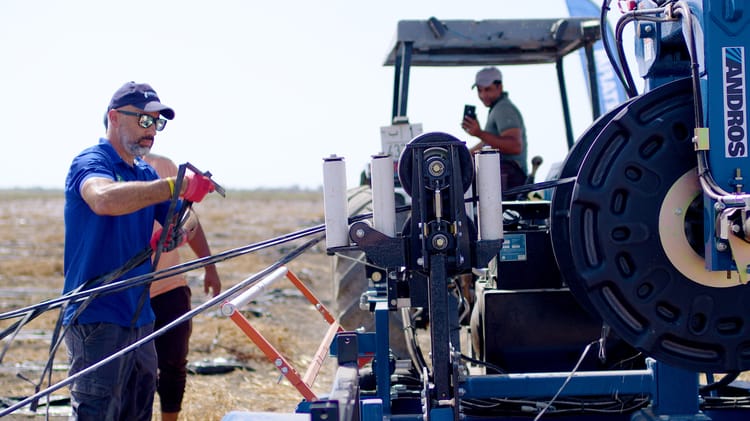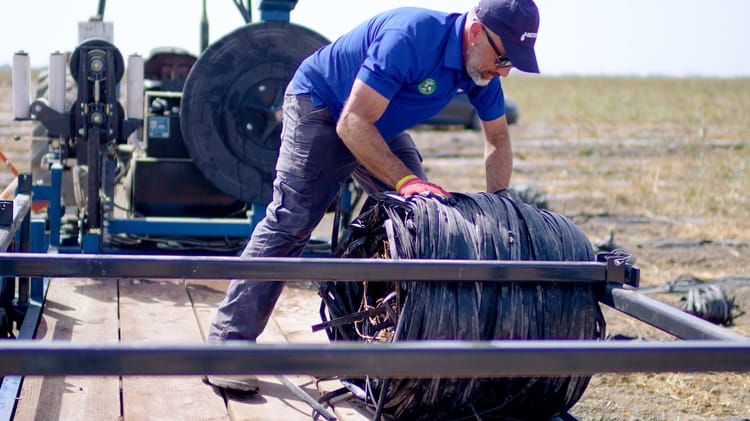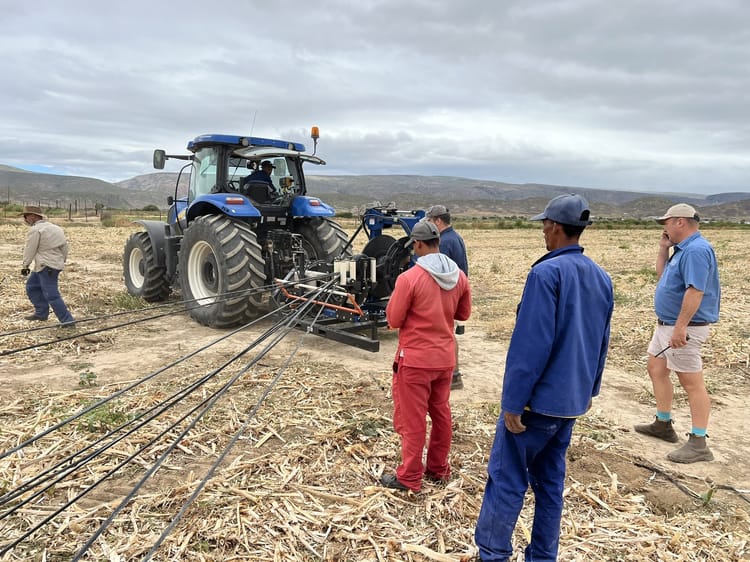Making Circularity Real: Lessons from the Field
When people hear the word Regen™, they often think it’s just another corporate sustainability initiative. But for me, Regen, and the broader mission of recycling and circularity is deeply personal. It’s not just about running a project or ticking a corporate responsibility box. It's about shaping the future we leave behind.
Rooted in Farming, Shaped by Values
My connection to farming started long before I stepped into my current role. I grew up walking around the fields and the factory at Netafim’s Hatzerim kibbutz, where agriculture wasn’t just a profession, it was a way of life. As a child, I developed a deep respect for the land and an instinct for keeping things orderly and cared for.
Even then, it made sense to me: if you take from the land, you must also give back. Leaving behind waste or disorder was never an option. This mindset became a natural foundation for my commitment to sustainability, long before the term became popular.
Over the years, I also worked in community management within the kibbutz, connecting more deeply with the human side of agriculture, the values of tikkun olam (repairing the world) and responsibility to future generations. Farming is not just about crops; it’s about stewardship, about leaving the land better than we found it.
Finding My Mission at Netafim
Since joining Netafim in 1998, I have seen firsthand how technology can transform agriculture. But early on, I also noticed a value waiting to be recovered: while we were making farming more efficient, we needed to invest deeper thinking into how to optimize the full life cycle of the materials we used, especially plastic.
In 2007, I started advocating inside Netafim for stronger environmental action. By 2013, during a tour of U.S. agricultural projects, it became crystal clear: we put so much effort into burying irrigation pipes underground, yet no one talked about what happened when their job was done. That realization planted a seed that eventually grew into what we now call Regen™.
Netafim has given me the platform to turn that seed into a real, global initiative. Although change isn’t always easy within a big company, I believe Netafim is the best place in the world for me to fulfill my personal vision: to contribute to sustainable agriculture through technological innovation. And I’m proud to be part of a company that doesn’t shy away from complex challenges like this.
I can proudly say that at Netafim, we truly “walk the talk.” What began as a single program 20 years ago has grown into a global network of Regen initiatives and recycling facilities across seven countries: California, Mexico, France, Spain, Turkey, Israel, and Australia, and since 2024, also in South Africa, where we collaborate with a local partner. And we’re not sitting still - we’re scaling up, expanding our reach, and constantly looking for new partners who share our vision of a circular economy in agriculture.

Regen™: More Than a Brand
Regen wasn’t born in a marketing meeting. It grew organically from real-world needs. Farmers needed help dealing with leftover irrigation pipes, and Regen offered a solution: we would collect the used pipes, recycle them, and reuse the material in new products. In my own home, my children know this: nothing we throw away is truly “gone.” It's our responsibility to give materials a second life.
Today, Regen is a symbol of something much bigger: a commitment to circularity. A belief that plastic is not waste, it’s a resource. And the numbers speak for themselves:
- 95,600 tons of external recycled polyethylene (rPE) have been used in Netafim driplines between 2019 and 2024.
- Globally, the share of pipes containing recycled material grew from 17% in 2019 to 52% in 2024 - a 25% year-over-year increase.
- If we look only at driplines, the growth is equally impressive: from 15% in 2019 to 43% in 2024, a 23% year-over-year increase.
- In North America, for TWD (thin wall dripline) products, the share of recycled material skyrocketed from 21% in 2019 to 98% in 2024 - a 36% year-over-year increase!
- Beyond using recycled material, Netafim invested heavily in making recycling possible: over $3 million invested in recycling machinery between 2021 and 2024, along with an additional $300,000 dedicated to building end-of-life plastic retrieval and collection solutions.
These milestones are proof that change is happening, not just in strategy documents but in real fields, real products, and real operations.

Walking the Fields, Building the Future
I spend a lot of time where it matters most: in the fields, with the farmers. From Morocco to Turkey, from Romania to China, I work alongside farmers, dealers, and recyclers to build practical, workable systems for collecting and recycling used irrigation plastic.
What convinces people isn’t polished brochures - it’s showing up, getting my boots dirty, and solving real problems: how to collect efficiently, how to make recycling economically attractive, how to create win-win models that are good for both business and the planet.
Yes, there are challenges: fluctuating raw material prices, patchy recycling infrastructure, cynical market dynamics. But I’m optimistic. Every clean field, every ton of recycled pipe, every farmer who joins this journey strengthens the foundation of a better agricultural future.

Why This Matters
Plastic has allowed humanity to achieve incredible progress. But it comes with a responsibility. We must use it wisely, and reuse it wisely, too.
At Netafim, sustainability isn't a marketing slogan. It’s woven into our DNA. Regen is just one manifestation of a broader commitment: helping farmers grow more with less, and ensuring that "less" also includes waste.
And one more thing to keep in mind: circularity can’t happen in isolation.
Real change requires the entire value chain to step up - each player taking responsibility, each link doing things differently than before.
When we move beyond old habits and work together, we don’t just close the loop - we build a system powered by connection, shared purpose, and lasting impact.


Comments
We'd love to hear your thoughts! To enter a comment, type your name and email address.